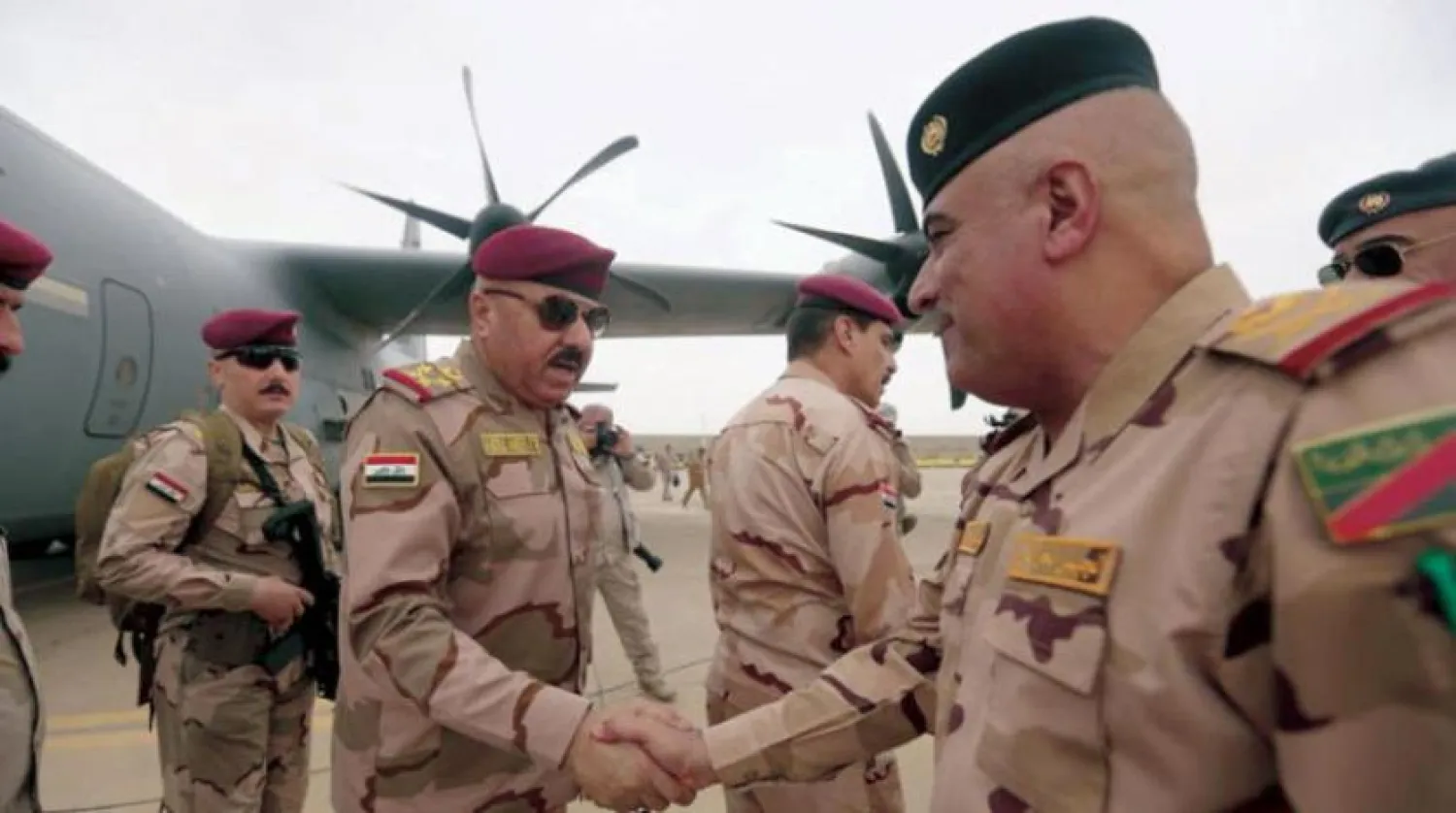The Iraqi military reestablished control of the northwestern region of Sinjar on Tuesday, said the Joint Operations Command (JOC) in a statement.
Sinjar had witnessed intense fighting on Monday between the Iraqi army and the Yazidi Resistance Forces (YBS), a group with ties to the Turkish insurgent Kurdistan Worker’s Party (PKK).
An Iraqi soldier was killed and two others were injured in the fighting. Dozens of Yazidi fighters were also killed.
On Tuesday, a high-level security delegation arrived in the district to inspect the military units and ensure that security is being imposed.
It was headed by Deputy Commander of Joint Operations, First Lieutenant General Abdul Amir al-Shamari and Chief of Staff of the Army, Lieutenant General Abdul Amir Yarallah.
“We imposed security and law and opened all roads. There was no damage to civilian facilities, nor to civilians,” said al-Shamari.
Sinjar is the site of frequent clashes between security forces and local fighters affiliated with the PKK, which Turkey views as a terrorist organization.
The two sides traded accusations of having ignited the latest fighting, which broke out Sunday.
"We will not allow any outlaw force to be present in Sinjar,” said spokesman for the JOC, Major General Tahsin al-Khafaji.
He noted that some parties tried to hinder the implementation of the Sinjar agreement.
In October 2020, Baghdad and the Kurdistan government signed an agreement to jointly manage Sinjar to restore the state’s hold over the patchwork of factions and competing authorities in the area after the defeat of ISIS. But this has proven largely unsuccessful.
“The Iraqi army is the only eligible party to manage Sinjar,” al-Khafaji said, adding that the west Nineveh Operations Command is responsible for this issue.
Following Monday’s clashes, at least 700 families fled Sinjar and its surrounding areas and headed farther north toward the semi-autonomous Kurdish region to seek asylum.
The tensions in Sinjar date back to months when pro-PKK groups refused to implement the Iraqi government's order to evacuate the province of all armed forces.
There are currently two local governments for Sinjar, one of which was appointed by the federal government in Baghdad, and the second is the elected government, which is running its business from the Duhok governorate.









